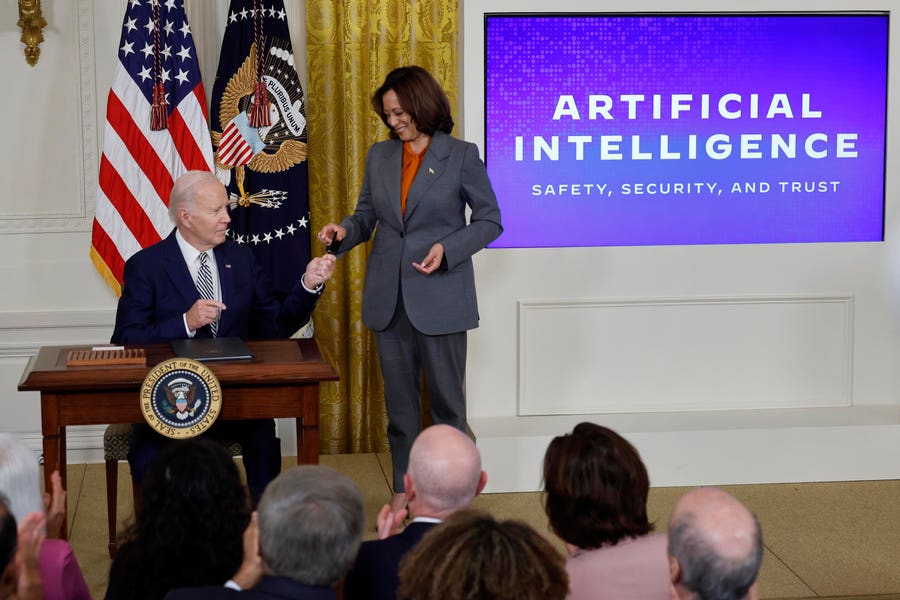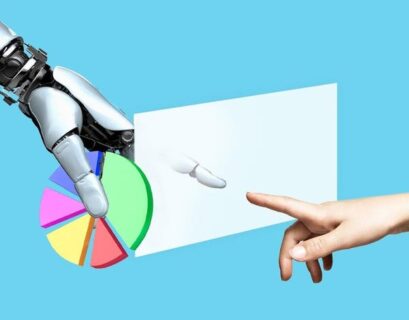- A significant majority of futurists participating in a survey on artificial intelligence expressed optimism regarding the technology’s impact on the labor landscape.
- While human evolution has ingrained a tendency to anticipate negative outcomes, experts believe that AI’s influence, spanning from employment trends to the competition dynamics between small enterprises and large corporations, is poised to be beneficial.
- Frank Diana, the lead futurist at Tata Consultancy Services, highlights that apprehensions surrounding conscious robots and artificial superintelligence often overshadow the potential positive implications that warrant more attention.
The emergence of generative artificial intelligence on a large scale has raised concerns across various sectors. A recent study funded by the U.S. government raised alarms about the “uncontrollable” repercussions of AI. Worries include potential catastrophic scenarios related to AI-driven cyber assaults and the ensuing displacement of jobs due to automation.
However, doom and gloom represent just one perspective on AI.
According to experts specializing in future projections, the advent of AI is more likely to provide a pathway away from humanity’s negative inclinations, fostering a more just and improved world. This optimistic outlook was outlined in a recent survey conducted by Tata Consultancy Services, which gauged the perspectives of 21 futurists worldwide on AI.
Frank Diana, the managing partner and principal futurist at Tata, remarked, “We are currently at a juncture where scientific and technological advancements can propel human progress in unprecedented ways.” He drew parallels to the second industrial revolution, anticipating that the widespread integration of AI will drive innovation across sectors such as transportation, energy, healthcare, and communication.
This viewpoint starkly contrasts with the apprehensions voiced by some prominent tech figures who have warned about AI surpassing human intelligence in the near future. Even within Silicon Valley, there exists a notable divide between those optimistic about technology and those forecasting doomsday scenarios.
Diana argues that doomsday narratives detract from and undermine the potential benefits of AI.
He emphasized, “I genuinely believe that discussions around conscious robots and artificial superintelligence are distracting. When managed appropriately, the focus should shift to the numerous positive contributions AI can make to humanity.”
Diana suggested that the prevalent negative perception of AI in popular culture can be traced back to the 1970s when Hollywood narratives took a darker turn to align with societal concerns. Prior to that, technology was often envisioned as a means to achieve utopian ideals.
Bernard Marr, an author and futurist not involved in the Tata survey, echoed this optimistic outlook.
Marr stated, “I witness the incredible advantages that AI can offer on a daily basis. I consider AI to be the most potent tool accessible to humans.” He believes this power can be harnessed to address disparities and tackle challenges in healthcare, education, and climate change.
Marr emphasized, “We are far from AI attaining sentience, if it ever does. Yet, AI excels at tasks that were traditionally within the human domain.” He views mundane tasks as a squandering of human potential and anticipates that AI will enable humans to focus on their unique capabilities.
He envisions AI evolving into a supportive co-pilot rather than a source of anxiety about a robotic takeover.
Marr predicted, “AI will enhance doctor-patient relationships significantly.” He described how AI could streamline administrative tasks like insurance processing, allowing healthcare professionals to allocate more time to patient care. “I perceive AI as non-threatening; the systems being developed are not in opposition to humans but rather aim to enhance our capabilities.”
Given the potency of AI, Marr stressed the importance of regulations and safeguards to prevent misuse.
“However, we are already witnessing progress in this regard,” Marr noted, referring to recent legislative initiatives by the EU.
So, why does apprehension persist? Discussions about sentient AI often gravitate towards negative scenarios. However, sentience can also encompass benevolent or neutral attributes, a facet often overlooked in AI discourse.
The root of AI-related fears can be traced back to human nature, according to Kelsey Latimer, a clinical psychologist from Florida specializing in anxiety disorders. She explained that humans are predisposed to anticipate threats, a trait ingrained through evolution.
“From an evolutionary standpoint, we are primed to anticipate threats and dangers to prepare for potential risks,” Latimer highlighted. Viewing situations pessimistically allows for readiness in the face of adversity. If a perceived threat turns out to be benign, no harm is done; however, misjudging a situation as safe when it poses risks can have severe consequences.
Futurists like Diana and Marr anticipate positive outcomes from AI’s integration.
Diana asserted, “AI has the potential to amplify human creativity and passion, allowing our unique capabilities to shine through.”










